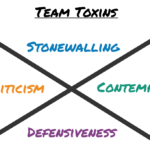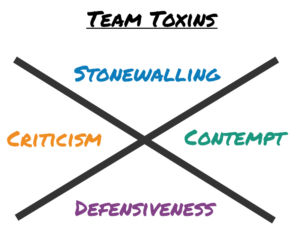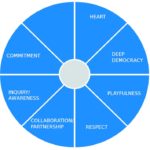I get a lot of questions about coaching – what is it, what do you mean by the word ‘coach’, is it the same as mentoring, is coaching just asking questions… and many more.
Who do you coach?
I coach people. 🙂 These may be individuals, pairs, couples, teams, organizations, or systems.
Can you tell me more about what the word Coach means to you?
 The word ‘Coach’ tends to have a lot of different uses. When I talk about coaching, I am referring to professional coaching, which in the US, tends to be associated with standards laid out by the International Coaching Federation (ICF). I view coaching as helping people find the internal wisdom to achieve their goals by moving beyond whatever is stopping them or slowing them down. Coaching is NOT about telling people what to do or judging them – the coach may be an expert on “coaching” but is not the expert on the person or the goals they have. This is concept is misunderstood by a lot of people. A coach is not the person who says “do this” or “don’t do that”! Coaching is always about the clients agenda – NOT the coach’s! The coach relies on the client being fabulous, amazing, and wanting to move forward toward a goal! That sounds over the top to some, but it really isn’t, it’s about having faith in the person! The key is that as a coach, I need to fully believe that the person (or people or system) I am coaching has the wisdom to solve their challenges. They might need some help in finding or accessing that wisdom or working through different options, but they can access the information to let them move forward! This is not always an easy place to stand, but believing in the client is a fundamental part of professional coaching. It does not work without it.
The word ‘Coach’ tends to have a lot of different uses. When I talk about coaching, I am referring to professional coaching, which in the US, tends to be associated with standards laid out by the International Coaching Federation (ICF). I view coaching as helping people find the internal wisdom to achieve their goals by moving beyond whatever is stopping them or slowing them down. Coaching is NOT about telling people what to do or judging them – the coach may be an expert on “coaching” but is not the expert on the person or the goals they have. This is concept is misunderstood by a lot of people. A coach is not the person who says “do this” or “don’t do that”! Coaching is always about the clients agenda – NOT the coach’s! The coach relies on the client being fabulous, amazing, and wanting to move forward toward a goal! That sounds over the top to some, but it really isn’t, it’s about having faith in the person! The key is that as a coach, I need to fully believe that the person (or people or system) I am coaching has the wisdom to solve their challenges. They might need some help in finding or accessing that wisdom or working through different options, but they can access the information to let them move forward! This is not always an easy place to stand, but believing in the client is a fundamental part of professional coaching. It does not work without it.
Continue Reading→








 The word ‘Coach’ tends to have a lot of different uses. When I talk about coaching, I am referring to professional coaching, which in the US, tends to be associated with standards laid out by the
The word ‘Coach’ tends to have a lot of different uses. When I talk about coaching, I am referring to professional coaching, which in the US, tends to be associated with standards laid out by the 
 For those of you who could not attend, our team toxin presentation is based on work by
For those of you who could not attend, our team toxin presentation is based on work by 

 worse? Are things sometimes LESS challenging than they appear?
worse? Are things sometimes LESS challenging than they appear? 
